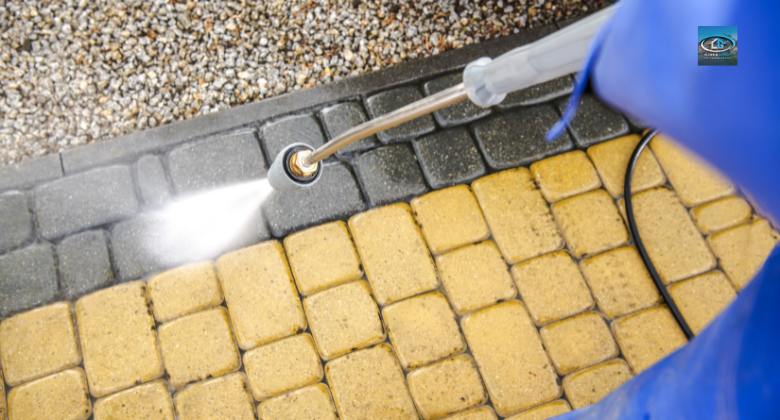
Pressure washing is essential for maintaining the cleanliness and integrity of surfaces in Florida’s humid and subtropical climate. However, the frequency of pressure washing depends on various factors, including climate conditions, surface type, and location within the state.
Introduction to Pressure Washing in Florida
In the Sunshine State, where high temperatures and humidity levels are the norm, pressure washing plays a crucial role in preserving the appearance and condition of residential, commercial, and industrial properties.
Understanding the Climate Factors
Florida’s climate is characterized by hot and humid summers, frequent rainfall, and the threat of tropical storms and hurricanes. These environmental factors contribute to the rapid growth of mold, mildew, algae, and other contaminants on outdoor surfaces.
Impact on Surfaces
The combination of heat, humidity, and rainfall creates ideal conditions for mold, mildew, algae, and moss to thrive on surfaces such as driveways, sidewalks, roofs, and exterior walls. These contaminants not only detract from the aesthetic appeal of properties but can also cause damage over time if left untreated.
Recommended Frequency of Pressure Washing
The recommended frequency of pressure washing in Florida varies depending on the type of surface and its exposure to environmental factors. Generally, residential properties may require pressure washing every 6-12 months, while commercial and industrial sites may need more frequent cleaning due to higher foot traffic and pollution levels.
Seasonal Considerations
In Florida, pressure washing needs may fluctuate with the seasons:
- Summer: Heavy rainfall and intense heat can accelerate the growth of mold and mildew, making summer an ideal time for pressure washing.
- Fall: As temperatures begin to cool, pressure washing can remove debris and prepare surfaces for the winter months.
- Winter: Despite milder temperatures, winter pressure washing can address any lingering mold or algae growth and prevent damage during the colder months.
- Spring: Spring pressure washing can refresh surfaces after the winter season and prepare them for the warmer months ahead.
Signs That It’s Time to Pressure Wash
Some indicators that it’s time to schedule a pressure washing service include:
- Visible Stains and Discoloration: Stubborn stains and discoloration indicate the presence of contaminants that need to be removed.
- Slippery Surfaces: Algae and moss can make surfaces slippery and hazardous, necessitating pressure washing for safety reasons.
- Foul Odors: Mold and mildew growth often produce unpleasant odors that can be eliminated through pressure washing.
DIY vs. Professional Services
While DIY pressure washing is an option for some homeowners, professional services offer several advantages, including:
- Pros and Cons: DIY pressure washing may save money upfront but can lead to damage or injury if not done correctly.
- Safety Considerations: Professional pressure washing services have the expertise and equipment to ensure safety during the cleaning process.
Choosing the Right Pressure Washing Service
When hiring a pressure washing service in Florida, consider factors such as:
- Experience and Expertise: Choose a company with years of experience and expertise in pressure washing in Florida’s unique climate.
- Equipment and Techniques: Ensure the company uses state-of-the-art equipment and techniques to achieve the best results.
- Environmental Considerations: Look for a pressure washing service that prioritizes environmental sustainability and uses eco-friendly cleaning products.
Cost Considerations
The cost of pressure washing in Florida depends on factors such as:
- Factors Influencing Pricing: The size of the area to be cleaned, the level of contamination, and any additional services required.
- Value for Money: While price is important, it’s essential to consider the value provided by a pressure washing service in terms of results and customer satisfaction.
Environmental Impact and Eco-Friendly Practices
Pressure washing companies in Florida are increasingly adopting eco-friendly practices, including:
- Wastewater Management: Proper disposal of wastewater is essential to prevent environmental contamination.
- Biodegradable Cleaners: Many pressure washing companies use biodegradable cleaning products that are safe for the environment.
- Compliance with Regulations: Reputable pressure washing services adhere to environmental regulations and best practices to minimize their impact on the environment.
Customer Satisfaction and Reviews
Customer satisfaction is paramount in the pressure washing industry, with many companies relying on:
- Importance of Feedback: Feedback from customers helps pressure washing companies improve their services and address any issues.
- Testimonials and Case Studies: Positive testimonials and case studies showcase a pressure washing company’s track record of success.
Common Mistakes to Avoid
When pressure washing in Florida, it’s essential to avoid common mistakes such as:
- Using Incorrect Pressure: Using too much pressure can damage surfaces, while using too little may not effectively clean them.
- Neglecting Protective Gear: Safety should always come first, so wearing protective gear such as goggles and gloves is crucial.
- Skipping Surface Preparation: Proper surface preparation ensures better results, so it’s essential not to rush the process.
Conclusion
In conclusion, regular pressure washing is essential for maintaining clean and healthy surfaces in Florida’s climate. By removing contaminants and preventing damage, pressure washing helps preserve the beauty and integrity of properties while promoting environmental sustainability.
FAQs (Frequently Asked Questions)
- How often should I pressure wash my driveway in Florida?
Driveways in Florida typically require pressure washing every 6-12 months to remove mold, mildew, and other contaminants. - Can pressure washing damage my roof in Florida?
When done correctly by professionals, pressure washing can safely clean roofs without causing damage. However, it’s essential to use the appropriate pressure and techniques for each type of roofing material.
